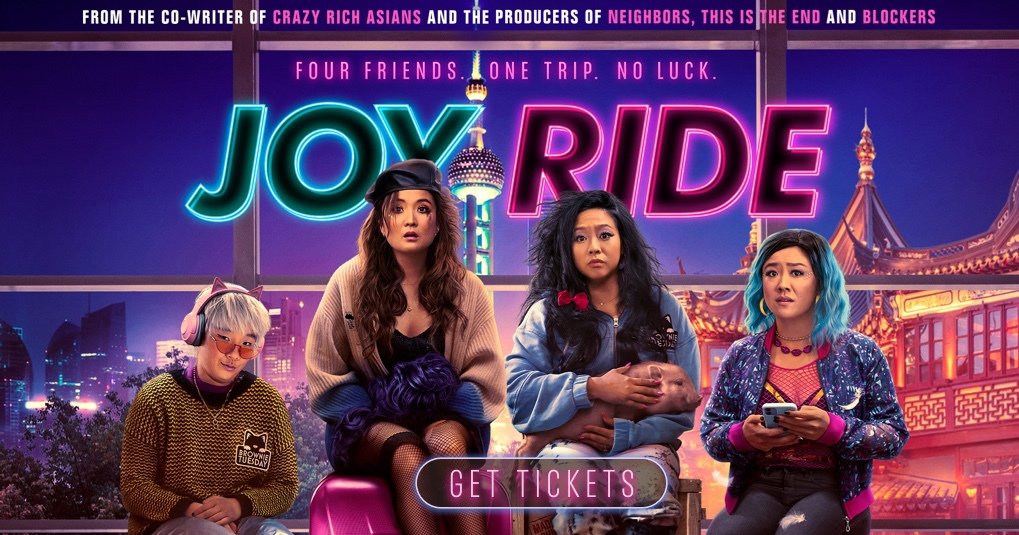Films that don’t explicitly try to represent a community are usually the ones that raise the standards for films that try to do so. In Lionsgate’s film “Joy Ride,” transracial adoptee Audrey (Ashley Park), goes to China for a business turned personal trip to find her birth mother with her friends. They end up on an unexpected joy ride, and as Audrey’s unknown past starts to interfere with her pre-planned future, she is forced to reckon with how she values her self-worth and friendships.
Connection Over Representation
“Joy Ride” screenwriters Cherry Chevapravatdumrong and Teresa Hsiao only sought to make an absurdist raunchy comedy, happy for people to connect with the story. This sensibility comes under the direction of Adele Lim, the co-writer of “Crazy Rich Asians” — an exceptional film that became the pinnacle of 2018 Asian American representation. “We’re writers, directors, actors. We don’t wake up in the morning going, ‘I want to create a project for representation,’” Lim said in a press conference.
The authenticity of the film shines in the friendships shown to the audience when Audrey goes on her business trip with Lolo (Sherry Cola), Kat (Stephanie Hsu), and Deadeye (Sabrina Wu). Instead of directly showing the audience the difference between Audrey’s adoptive white parents and Lolo’s Chinese parents, a montage shows how Audrey and Lolo’s friendship over the years was not always centered around their otherness as two Asian girls in a predominantly white town. We can relate to the girls desiring different career paths, but still staying as best friends while having their own individual tastes and styles.
Shifting the Focus Away from Romance
The film also breaks boundaries by not being centered around romance, and choosing to focus heavily on the female and nonbinary characters. While Audrey is discovering her roots, Kat, Lolo, and Deadeye already have their own fully developed character arcs. Though the characters and…
Read the full article here





